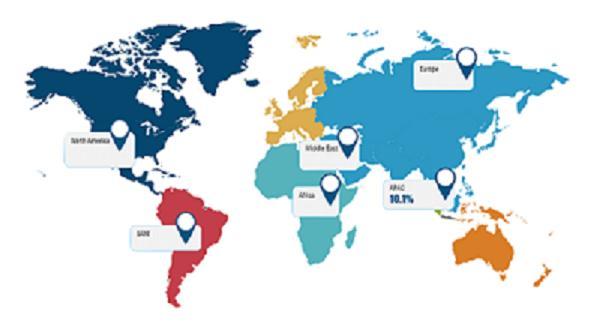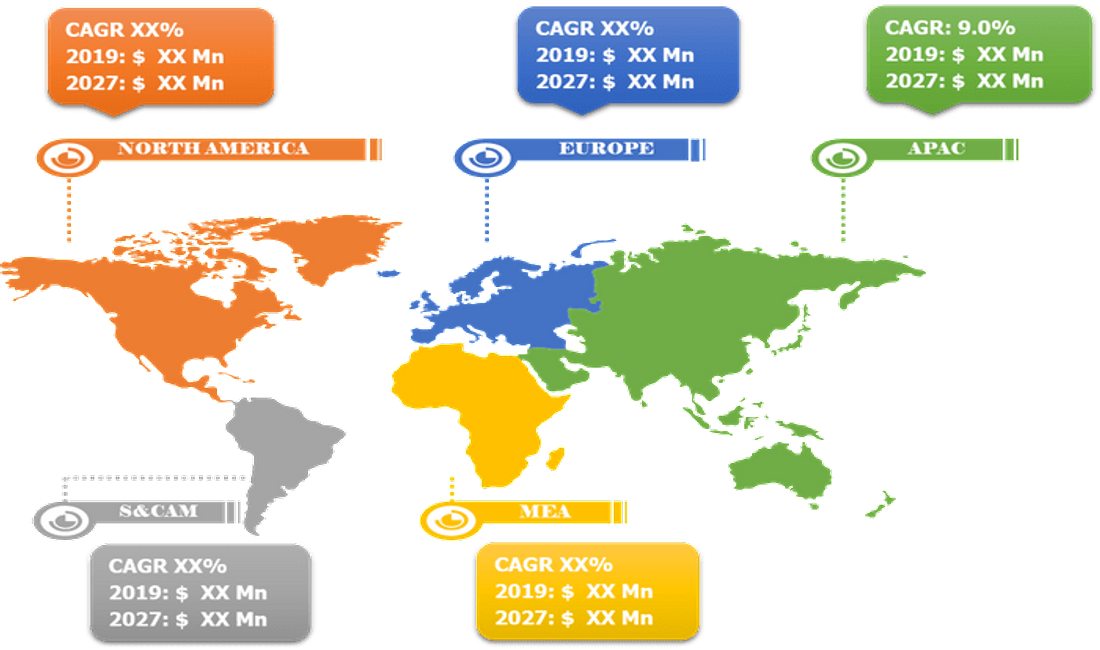The rising penetration of sophisticated cars integrated with advanced safety and navigation systems is creating a positive consequence on sharing concepts. Economies like the US and China are becoming leading market when it comes to evolving automotive sector. At present, commercial 12V battery technology depends on lead-based chemistries. More than 400 million 12V lead-based batteries are manufactured annually to cater both OEMs and aftermarket needs related to light-duty vehicle applications globally. Regions such as Europe experiences demand for more than 60 million batteries yearly.
Few prominent factors contributing towards the growth of lead acid battery for automotive application includes continuous production and adoption of mild hybrid vehicle by leading automakers such as Ford and Volkswagen. Also, growing income of masses is further creating demand for cars which is positively boosting the production of more cars, and therefore countries such as India is attracting attention of gigantic automakers for the establishment of car manufacturing plant. Recently, Tesla has announced about the establishment of manufacturing plant in India. Such plants for automotive production would eventually create the demand for lead acid batteries as well. Furthermore, use of 12-volt lead acid batteries and regulations in respect to use BSVI compliant vehicles are also projected to foster the development phase of lead acid batteries.
CLARIOS, GS YUASA, CHINA SHIPBUILDING CORPORATION, EXIDE, SHOWA DENKO – PROMINENT MARKET PARTICIPANTS IN AUTOMOTIVE LEAD ACID BATTERY MARKET
The global Automotive Lead Acid Battery market has been segmented into five major regions: North America, Europe, APAC, MEA, and SAM. APAC holds the dominant share in the Automotive Lead Acid Battery market, whereas North America is expected to be the fastest-growing region in the global market. The world is witnessing a proliferation in the adoption of hybrid vehicles. Due to formulation of stringent emission standards by government to protect environment while boosting fuel efficiency, both automotive manufacturers and government are making a strategic towards promoting use of hybrid vehicles from old and conventional vehicles. EVI Membership, EV30@30 campaign, EVI Global EV Pilot City Programme (EVI-PCP), FAME-I and II, National Mission for Transformative Mobility and Battery Manufacturing, National Electric Mobility Mission Plan, and Phased Manufacturing Program are some of the government initiatives promoting use of next generation of mobility. These initiatives are contributing towards fostering the adoption of vehicles including hybrid vehicles.
In addition, there are numerous automotive manufacturers making significant investment in developing mild hybrid vehicles. The auto manufacturers have commenced with introducing 48V mild hybrid amongst a standard feature in new vehicle models. Volkswagen is one of a key player in mild hybrid vehicles had unveiled 48V mild hybrid version of 8th generation Golf in 2019, for instance. In a same year, another car manufacturer Ford has revealed Focus EcoBoost Hybrid & Fiesta EcoBoost Hybrid vehicle models to cater European market. Introduction of such mild hybrid vehicles into the market is driving the adoption of lead acid batteries for automotive applications.
The top five companies in the Automotive Lead Acid Battery market include Clarios, GS Yuasa, China Shipbuilding Corporation, Exide, Showa Denko. The above listing of key players is derived by considering multiple factors such as overall revenue, current Automotive Lead Acid Battery portfolio, new product launches, market initiatives, investment in technology up-gradation, mergers & acquisitions, and other joint activities. There are various other notable players in the global Automotive Lead Acid Battery market ecosystem such as SB Energy Technology Co., Ltd., EnerSys, East Penn Manufacturing Company, Johnson Controls, Inc., leoch International Technology Limited Inc, Panasonic Corporation, and KOYO BATTERY CO., LTD, amongst others.
As a global producer of automotive lead-acid batteries, APAC is expected to be one of the fastest-growing markets. Automotive lead-acid batteries are in high demand in countries such as Japan, China, India, Australia, among others. The development of automotive lead-acid batteries is projected to be fueled by the selling of automobiles in China and India. The automotive lead-acid batteries market in APAC is expected to rise due to the rising population, rapid urbanization, and investments in automotive industries. Asia leads the world in lead-acid battery manufacturing, with China accounting for 45 percent of total production, followed by Japan (19 percent), and Korea (7 percent). According to a study of 50 global LIB recycling firms, approximately 100,000 tonnes of lead-acid batteries were recycled worldwide in 2018, in which 67,000 tonnes were recycled in China and 18,000 tonnes were recycled in South Korea. As a result, the demand for automotive lead-acid batteries in the Asia Pacific will expand, owing to rising production and recycling rates.



